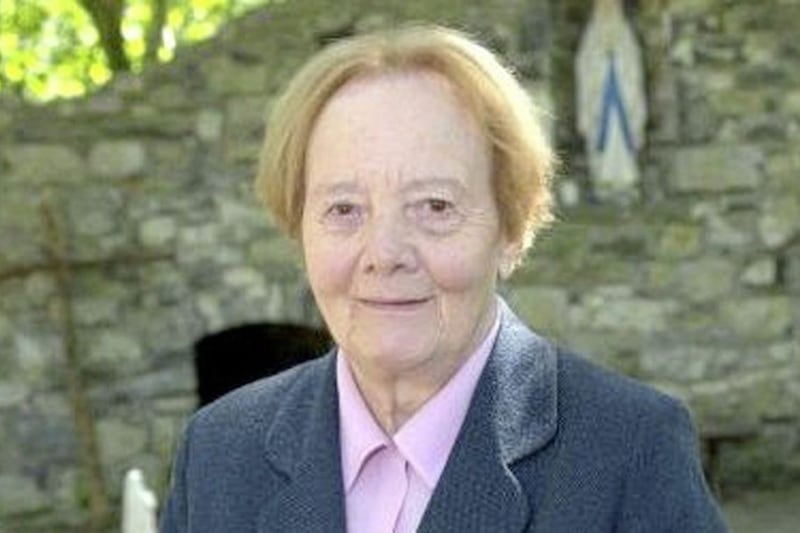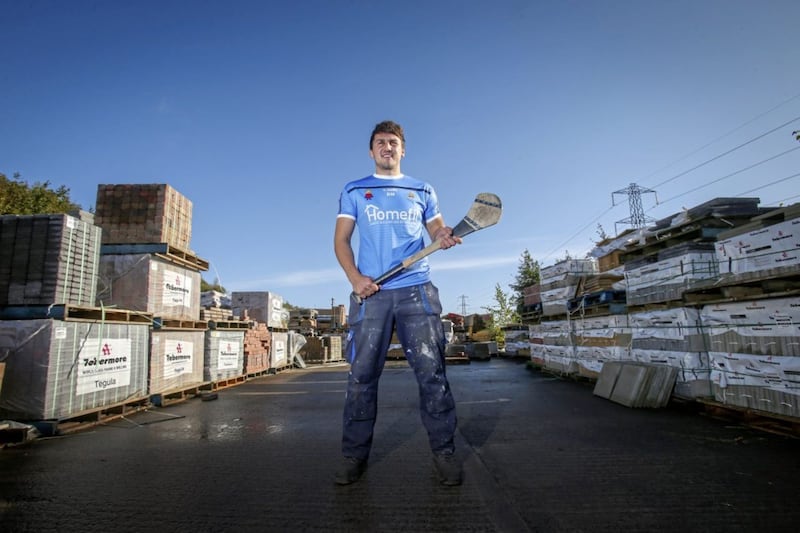WHEN Liz (not her real name) arrived at the Cuan Mhuire addiction treatment centre at the beginning of 2018, she was "on her knees". A registered nurse with a successful career and secure home life, the then 49-year-old had spiralled into alcohol dependency at a frightening speed.
What had begun with opening a bottle of wine to relax in the evening after work had snowballed within two years until she found herself in "a cesspit of addiction and despair".
Her life was saved, she says, by the 12-week residential course which she undertook at the charity's Newry centre and the life skills which she learnt there and which she continues to use every day.
She also knows that, like all members of the Cuan Mhuire family, she can contact staff at any time of the day or night, and avail of the organisation's aftercare services for as long as she needs to.
Cuan Mhuire, which translates as 'Mary's Harbour' is a network of treatment centres across Ireland founded by Sister of Mercy Sr Consilio Fitzgerald in 1966. The Newry centre, the charity's only location in Northern Ireland, has been providing support to people suffering from alcohol and gambling addictions and their families for the past 37 years.
When Covid hit last March, it had to halt new admissions but resumed them in the summer as it had more than 100 people waiting.
It has also faced extra financial pressures as many fundraising initiatives had to be cancelled. Today, the centre has 79 residents and a waiting list of around 50 people.
Lockdown has proved extremely difficult for most people but for those struggling with addiction, their problems have been magnified. Director Noel Griffin says that, in the past year, the centre has seen demand for its services increase by 20 per cent, with a 10 per cent rise in those aged between 18 and 29 seeking help.
Gambling addiction has also increased by over eight per cent and there has been a rise in re-admissions since March 2020 of people who have relapsed due to lockdown.

For people like Liz and thousands of others, Cuan Mhuire has been a beacon of hope when they were at their lowest. Now into her third year of sobriety, Liz, who lives in the Belfast area, has returned as a volunteer and has been working over lockdown as well as having resumed her nursing career.
She says: "I had been a social drinker, but when alcoholism grabbed me it nearly throttled me to death quite quickly.
"That glass of wine became more and more important. I couldn't wait to get through the door to have a drink.
"I had taken a career break to travel and it just snowballed. The drinking got completely out of hand and by the time I realised, I was already in the depths of addiction."
Happily married to a businessman, with children and no financial worries, Liz feared she was going to lose everything.
"Cuan Mhuire helps you not only look at your addiction and the root of your addiction, it also gets you to look at yourself and your self-awareness," she explains.
"It's a tough, emotional, spiritual programme but it has been life-changing. The skills we learn are life skills –awareness, mindfulness, how to deal with anxiety and stress, good thinking and gratitude.
"I have had a second chance at life and it's a thousand times better because alcohol doesn't have a grip on me or my soul. It's an amazing service and I owe my life to it. I have no fear of tomorrow."
Omagh man Ian (69), who is now living in Belfast, also says Cuan Mhuire gave him a "second chance at life". He had lost "everything and everyone" close to him, including his family, when he began the residential programme in October 2018.
"Alcohol took preference over everything and everybody. As long as I had a drink nothing else mattered," he says.
"During the height of my addiction, I was mentally torturing my family and it resulted in a total breakdown of relations with them.
"My own health was deteriorating but I wasn't listening to anybody. I was drinking all day, every day and I knew I had a big problem and I needed help."
After ending up in hospital due to a serious bout of drinking, he spent a week in a detox centre before being admitted to Cuan Mhuire.
"The programme was hard going at times but what I realised as it went on was that the one thing that had to change was me," he says.
On reflection, Ian says, the programme also brought a structure to his life which had been missing since his retirement – the period when his descent into addiction had begun in earnest. Today, Ian maintains that structure. He volunteers at Cuan Mhuire two days a week, takes part in the centre's after-care programme and also attends Alcoholics Anonymous (AA) meetings three times a week.
His life today is very different to the one he had before. After leaving the centre, he moved into Rosemount House, a hostel for homeless addicts in Belfast, where he received invaluable support. And, just last month, he took another step forward when he moved into a place of his own.
Now sober for almost two-and-a-half years, Ian says he has also "reconnected" to his faith again and has a new "trust" in God. His main source of sadness and regret is the breakdown of relations with his wife, two children and three grandchildren.
He adds: "The family were good to me, they supported me and they loved me but unfortunately I let them down.
"I regret the past and I just hope that some day family relations will get better. I pray for them every night and every morning that they are alright. They didn't deserve what I gave them because they trusted me and I broke all that.
"But life is okay. I have a lot of support and I feel very, very lucky that I have all that."
Noel Griffin points out that while alcohol is the main addiction, around 12 per cent of people have also taken some form of drugs, particularly cocaine, in the past 12 months.
"All of this is a very worrying trend especially given the very young age of some of our residents. We have and have had many teenagers who have been in addiction since they were 11-12 years of age," he explains.
Noel says alcohol-related deaths in Northern Ireland reached a record high in 2019, and while more men die as a result of alcohol addiction the number of women dying in 2019 was at an all-time high.
"As a direct result of lockdown it is clear that many more people than ever are consuming alcohol at home. Whilst that is an individual choice … nonetheless there are no opening and closing times at home. Plus, there are usually no proper measures.
"Also, with people furloughed they have got into the habit we know is very difficult to stop. Over what can be a very short period of time people can become addicted. The same situation relates to gambling, either on your phone or laptop. It is so easily accessible.
"Our young people in particular need to be educated at every level about the dangers of alcohol, gambling and substance abuse."
Cuan Mhuire is open to people of all backgrounds and no one is ever turned away. Anyone wishing to avail of their service or support the charity in any way can do so by contacting 200 Dublin Road, Newry, BT35 8RL. Tel: 028 3084 9010, email Newry@CuanMhuire.ie or ngriffin@CuanMhuire.ie.








